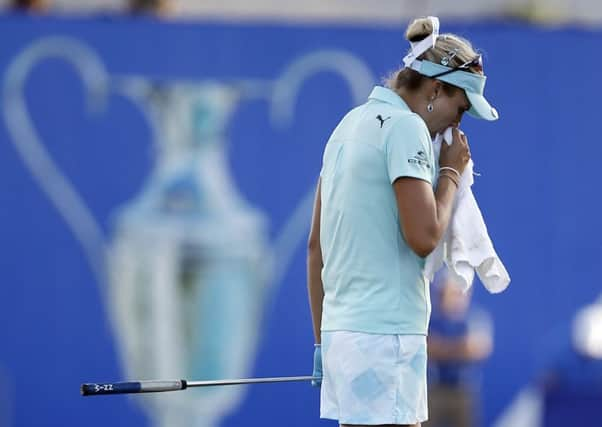Comment: Lexi Thompson wasn't cheated of win '“ she broke rule


The 22-year-old American was three shots clear in the final round in California on Sunday when she was hit with a four-shot penalty for an infringement that had happened at the 17th hole the previous day. That penalty was imposed after someone watching the game on TV had informed the match referee of the rule breach.
That Thompson still almost won, eventually losing in a play-off to Korea’s So Yeon Ryu, was a remarkable effort.
Advertisement
Hide AdAdvertisement
Hide AdShe certainly deserves enormous credit for that and handled the situation with class, but I’m not buying into the view being expressed by many on this one that Thompson was “cheated” out of a win, even though the incident may indeed leave a sour taste.
Yes, of course, it seems unpalatable that someone sitting at home can have such an influence on a sporting event of this magnitude and it needs to stop because it’s not good at all for the health of the game. There can be absolutely no denying, however, that Thompson was penalised because she broke the rules.
Okay, it may have taken a slow-motion replay to show it, but she replaced her ball wrongly and that’s the crux of this matter. She brought this sorry affair on herself. What was she doing in the first place marking her ball when faced with a putt that was no more than a foot-and-a- half? That, in truth, is something that has crept into the game at all levels and it’s a joke. It’s been said that Thompson did so because of her wanting to feel comfortable with “alignment”, but from what I could see she didn’t point either a logo or line on the ball towards the hole. She didn’t help herself by not being directly behind the ball as she was marking it. She was a bit to the side and that probably played its part in the ball clearly being replaced in a different position.
Did she intentionally try and cheat? I don’t think so and, by all accounts, Thompson isn’t a player who would do such a thing. It was probably a simple mistake but, nonetheless, it was a breach of the rules and every single golfer worth his or her salt knows the importance attached to an individual placing a ball back in the same spot.
Sue Witters, the LPGA’s vice president for rules and competitions, said the ball was misplaced by “maybe an inch”. She also felt “100 per cent certain it was not intentional”. What was she supposed to do, though, once the incident had been highlighted? “What was my choice?” she said. “I ignore a violation of the rule then I get criticised for that. It made me sick, but I had to do it.”
Yes, of course, it was awful to see Thompson in tears afterwards and golf can certainly do without situations like this cropping up on a way-too-regular basis. At the same time, though, the sport has a set of rules that every single player in a self-regulating sport should respect and adhere to at all times.
It is indeed time for armchair referees to be stopped from intervening and paid officials left to make the calls. At the same time, though, players have a duty to stop bringing grief like this on themselves.